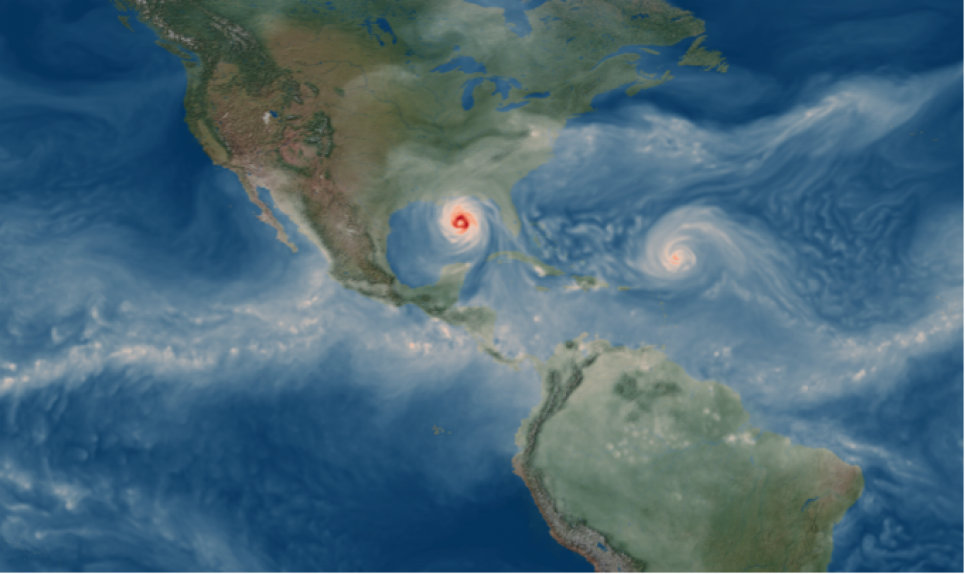
Convection Permitting Simulations of Historical and Possible Future Climate over the Contiguous United States
Abstract:
Potential changes in high-impact sensible weather conditions in the 21st century is a rapidly growing subfield of climate science. We present a novel, high-resolution, dynamically downscaled simulation dataset that helps inform regional and local stakeholders regarding potential impacts of climate change on extreme weather events. WRF-ARW version 4.1.2 was used in a convection-permitting configuration (horizontal grid spacing of 3.75 km) as a regional climate model for a domain covering the CONUS. Initial and lateral boundary data into the regional climate model originates from a global climate model simulation by NCAR’s Community Earth System Model (CESM) that participated in phase 5 of the Coupled Model Intercomparison Project (CMIP5). Herein, we use a version of these data that are regridded and bias corrected using 1981–2005 ERA-Interim reanalysis. To examine climate regimes, two 15-year downscaled simulation epochs were examined comprising of historical (HIST; 1990–2005) and future (FUTR; 2085–2100) time slices. FUTR scenarios were further stratified using Representative Concentration Pathway 4.5 and 8.5. Verification and discussion of the HIST epoch to independent reanalysis data will be presented for the state variables, as well as presentation of the FUTR changes. We will also discuss the 29 additional variables archived at an output interval of 15-minutes that aid in the explicit and implicit detection of extreme meso-γ weather phenomena and how stakeholders can utilize these data.
Bios:
Dr. Gensini's research umbrella covers extreme weather and climate, with specific interests focused on: severe convective storms, synoptic/mesoscale meteorology, applied climatology, GIS techniques, geoscience data visualization, weather forecasting and climate change. His research has primarily focused on the relationship between severe convective storms and climate change by utilizing dynamical downscaling from a convective permitting regional climate model. Currently, a majority of his research is examining weather and climate dynamics that explain variability in extreme weather (e.g., hail, tornadoes, heavy rain, heat waves) frequency and analyzing ways to forecast these events at sub-seasonal to seasonal time scales.
Dr. Ashley is an atmospheric scientist and physical geographer with interests in hazards and societal interactions, severe storms, and applied climatology and meteorology. His research focuses on understanding how human exposure and vulnerability contributes to weather-related disasters; how urbanization and other land covers/uses influence thunderstorm formation; radar-based climatologies of organized thunderstorms and weather hazard impacts on transportation systems. In the past, he has investigated the climatology and hazards of widespread and long-lived windstorms known as derechos, the rainfall patterns of thunderstorm complexes, the importance of increasing population and suburban sprawl on tornado vulnerability, and the geographies of weather-related fatalities.
Dr. Michaelis's primary research interests involve high-impact weather in the context of climate change and short-term predictability. She utilizes high-resolution models to simulate phenomena such as tropical cyclones, extratropical transition events, snowstorms, and atmospheric rivers to examine how these systems and their impacts may change 50–100 years from now. She is also interested in short-term predictability challenges such as the formation of mesoscale frontal waves along atmospheric rivers.
Dr. Haberlie is interested in observed and future projections of climate extremes, severe and hazardous weather, and land use/land cover effects on regional climatology. He uses machine learning, digital image processing, and climate modeling to conduct his research.
Zoom Link: https://argonne.zoomgov.com/j/1604877729